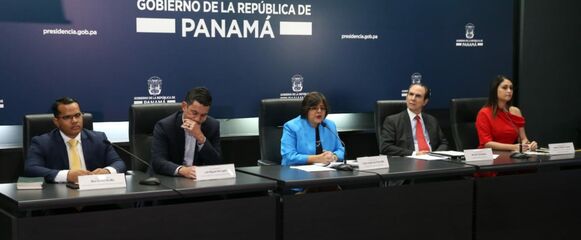Panama returns to financial watchdog gray list

Panama is back on the gray list of the Financial Action Task Force (FATF) which identifies countries with deficiencies to prevent money laundering and terrorist financing.
The decision came during the FATF plenary meeting, which is being held this week in Orlando, United States.
The Minister of Economy and Finance, Eyda Varela de Chinchilla, who had earlier reported that FATF was positive in regards to Panama said that although the FATF recognizes the progress made by Panama and its political commitment at the highest level, during the plenary this week, it was approved that Panama be included in the non compliance document and under FATF monitoring.
The organization analyzed the compliance of the 40 technical recommendations and 11 of effectiveness.
The inclusion of Panama in the gray list implies, for example, that the correspondent banks of the United States will be obliged to reinforce the control measures over transactions related to Panama.
“We are pleased to have achieved the approval of multiple laws,” said the minister.
As part of the action plan, Panama is committed to strengthening the national risk assessment; identify senders of money without a license, applying a risk-based approach in the non-financial sector; ensure the verification and updating of the information of the final beneficiary and strengthen effective monitoring mechanisms of offshore entities ; as well as ensuring the effective use of the inputs generated by the Financial Analysis Unit.
The superintendent of Banks of Panama, Ricardo Fernandez, said that the process of supervision based on risks has been strengthened, inspections have multiplied and sanctions close to $6 million have been imposed a with the prevention regime.
The president of the Panama Banking Association, Aimeé Sentmat de Grimaldo, said that the union does not consider that the country deserves to be on the gray list and that the efforts made to strengthen the legal framework should be recognized.
Panama was already listed by the FATF between 2014 and 2016.





